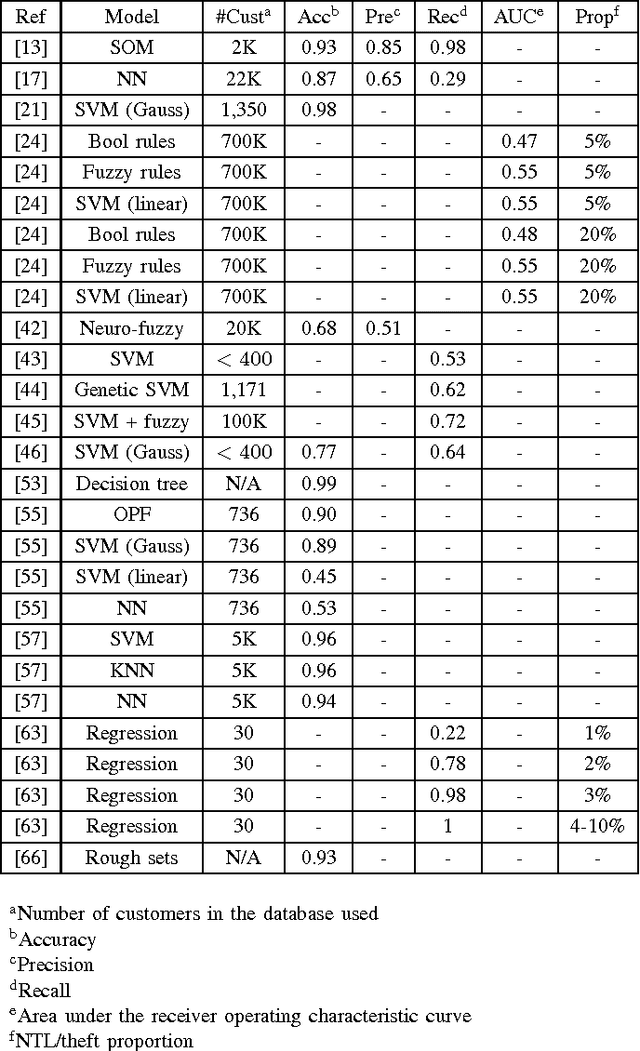The Challenge of Non-Technical Loss Detection using Artificial Intelligence: A Survey
Paper and Code
Jul 25, 2017
Detection of non-technical losses (NTL) which include electricity theft, faulty meters or billing errors has attracted increasing attention from researchers in electrical engineering and computer science. NTLs cause significant harm to the economy, as in some countries they may range up to 40% of the total electricity distributed. The predominant research direction is employing artificial intelligence to predict whether a customer causes NTL. This paper first provides an overview of how NTLs are defined and their impact on economies, which include loss of revenue and profit of electricity providers and decrease of the stability and reliability of electrical power grids. It then surveys the state-of-the-art research efforts in a up-to-date and comprehensive review of algorithms, features and data sets used. It finally identifies the key scientific and engineering challenges in NTL detection and suggests how they could be addressed in the future.
 Add to Chrome
Add to Chrome Add to Firefox
Add to Firefox Add to Edge
Add to Edge